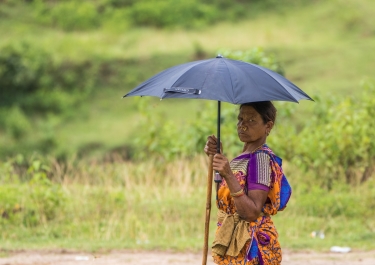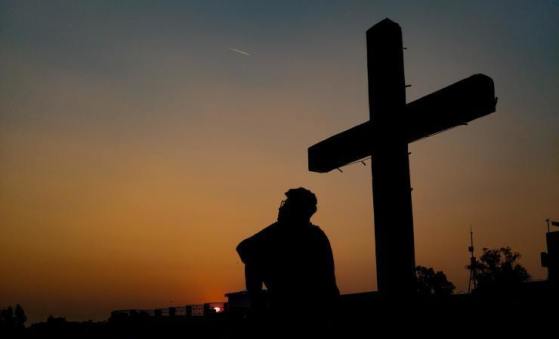
Tribal student organisations across Assam staged fierce protests on July 30 against Kaziranga MP Kamakhya Prasad Tasa following his controversial statement that Adivasis who follow Christianity are not eligible for Scheduled Tribe (ST) status in the state.
The All Adivasi Students’ Association of Assam (AASAA) led demonstrations in multiple locations, with protesters burning effigies of both Prime Minister Narendra Modi and MP Tasa in symbolic condemnation of what they termed “divisive and unconstitutional” remarks.
In Dibrugarh, AASAA members from the Lahowal and Mohanbari regional committees gathered at the bypass near Bokel, where they set fire to effigies whilst demanding an immediate apology and retraction from the MP. Similar scenes unfolded in Dimakuchi, where the Udalguri district committee of AASAA collaborated with the local committee to organise protests at Atarikhat.
The controversy stems from Tasa’s appearance on a television talk show where he reportedly claimed that Adivasis practising the Christian faith do not qualify for ST status. The statement has sparked widespread outrage amongst tribal communities who view it as an attempt to create religious divisions within their ranks.
AASAA district president Gautam Sangha sharply criticised the MP’s position, questioning its constitutional foundation. “The Constitution of India does not disqualify anyone from ST status based on their faith,” he said, emphasising that significant portions of tribal communities across India, including in Assam, belong to Christianity or other religions.
“If the Constitution recognises tribals practising Christianity or other faiths as Scheduled Tribes in other states, why should it be any different in Assam?” Sangha asked during the protests.
The student organisation accused the Bharatiya Janata Party of betraying pre-election commitments to the Adivasi community. “In 2014 and 2016, the BJP pledged to grant ST status to Adivasis and raise the daily wages of tea garden workers to Rs 351. More than a decade later, those promises remain unfulfilled,” another AASAA leader stated.
Protesters emphasised that religious identity should not serve as grounds for denying constitutional rights. “Historically, many Adivasis converted to Hinduism, often without knowledge of their ancestral beliefs. That does not make them more or less eligible for ST status,” the organisation asserted.
The controversy has also drawn responses on social media, with Deonish Tirkey, a tribal IT technician, posting on Facebook: “Please remember that no religion or religious leader has ever demanded Scheduled Tribe status. The identity and rights of Adivasis come from their culture, language, and traditional way of life, not from any religion.”
Tasa’s remarks echo similar statements made by other BJP leaders in recent months. In July, Udaipur MP Mannalal Rawat brought the same demand to the Lok Sabha, calling for the removal of religious converts from the ST category and highlighting what he termed a “legal loophole” that has persisted for 75 years.
The controversy reflects a broader campaign being pursued by RSS-affiliated organisations across India. The Janjati Suraksha Manch (JSM), backed by the Rashtriya Swayamsevak Sangh, has been organising rallies in multiple states demanding the removal of Christian and Muslim tribals from the ST list.
The Bhopal-based organisation has claimed it held rallies in 170 tribal-dominated districts across the country. In December 2023, a major rally in Jharkhand’s Ranchi saw around 10,000 participants demanding the delisting of converted tribals, with speakers including seven-time BJP MP Kariya Munda.
The delisting campaign has gained support from prominent political figures. In June, veteran tribal leader and former Union Minister Arvind Netam, a long-time former Congressman, announced his support for delisting converted tribals after attending an RSS training camp in Nagpur as chief guest. “Initially, I was opposed to it but later I felt this was one of the ways to stop religious conversions,” Netam said.
BJP leaders from tribal-dominated states have also backed the demand. Chhattisgarh Chief Minister Vishnu Deo Sai and former Jharkhand Chief Minister Champai Soren have both made statements supporting the delisting of converted Adivasis.
JSM functionary Sharad Chavan has claimed that “80 per cent of those who avail ST quota are converts” and argued that tribals who convert to other religions should lose their reservation benefits because they “leave their distinct lifestyles, cultures and festivals based on nature”.
Similar campaigns have been organised in Tripura, Rajasthan, Gujarat, Chhattisgarh and Madhya Pradesh. In Tripura, the JSM held rallies demanding the delisting of Christian tribals, with local convenor Kartik Tripura claiming that tribal culture was under threat from Christianity.
In Assam, the issue has been championed by the Janajati Dharma-Sanskriti Suraksha Manch (JDSSM), an RSS affiliate that has intensified its agitation demanding to delist tribals who have undergone religious conversion.
Speaking in the Lok Sabha in July, Rawat alleged that Christian missionaries had been conducting forced conversions in tribal areas through financial inducements. “They have devised a formula: change your belief system but not your legal identity. This poses a serious threat to tribal culture and traditions,” Rawat said.
The Udaipur MP, who has strong ties with the JSM, claimed that “limited resources are being diverted to those who no longer preserve tribal identity, weakening socio-economic development efforts” in tribal areas of Rajasthan.
The JSM bases its argument on Article 341 of the Constitution, which governs Scheduled Caste reservations and stipulates that conversion to certain religions can result in loss of SC status. The organisation argues this principle should extend to Scheduled Tribes under Article 342.
However, constitutional experts point out that Article 342, which governs Scheduled Tribes, contains no such religious restrictions. The Constitution specifies that tribes are designated based on their cultural heritage, traditions, lifestyle, customs and practices, with no mention of religion as a disqualifying factor.
Tribal rights organisations have condemned the delisting campaign as unconstitutional and divisive. In Tripura, CPI(M) state secretary described the JSM’s campaign as stemming from the “sinister designs of the RSS and BJP”. Similar criticism has come from tribal rights groups in other states where the campaign is active.
Allen Brooks, spokesperson for the Assam Christian Forum, told Christian Today that church leaders have “consciously abstained ourselves from responding on the subject as any reply will give the Saffron Party the much needed fuel to keep the non-issue alive and divide the Adivasi Community as we run up to the Assam Assembly Elections in 2026”.
“The Constitution is very clear on the subject matter, be it in Nagaland, Meghalaya, Manipur, Mizoram, Arunachal Pradesh, Tripura, Jharkhand, Chhattisgarh or for that matter Assam,” Brooks added.
The RSS has moderated its stance from region to region, recognising the complexity of the delisting issue. In northeastern states where converted tribals form a majority, the organisation has been more cautious about raising the issue due to electoral considerations.
The protests come at a sensitive time for the BJP in Assam, where the party has sought to balance its Hindu nationalist agenda with the need to maintain support amongst diverse tribal communities. Christian tribals form a significant portion of the population in northeastern states, making any move to exclude them from ST benefits politically risky.
In Jharkhand, where the BJP won just two seats out of 28 ST-reserved seats in the 2019 Assembly election, political observers say that the RSS through its affiliate is trying to change the electoral mood in these constituencies, and that rallies demanding the delisting of converted tribals may bring about polarisation.
Reports of conflicts have emerged from areas like Bastar in Chhattisgarh, where conversion and reconversion campaigns have created divisions within tribal communities.
No law currently disqualifies Christian or Muslim tribals from ST status, and any change would require constitutional amendments through Parliament. The Constitution’s approach to Scheduled Tribes differs from its treatment of Scheduled Castes, with tribal designation based on cultural and historical rather than religious factors.
Several northeastern states, including Meghalaya and Nagaland, have Christian-majority tribal populations who have enjoyed ST status since independence. Any attempt to delist them would affect a substantial portion of these states’ populations and could have significant political ramifications.
The ongoing demonstrations in Assam signal growing resistance amongst tribal communities to attempts at religious polarisation. Student leaders have vowed to continue their campaign until MP Tasa issues a public apology and retracts his controversial statement.
Tasa, 50, who represents the Kaziranga constituency and serves as National Secretary of the BJP, belongs to the Tea Tribes community himself but has yet to respond publicly to the protests or clarify his position.
In Jharkhand, a Christian pastor who requested anonymity for security reasons told Christian Today: “I was born tribal, I remain tribal. My faith in Christ doesn’t change my blood or my ancestors. We’ve served our communities for generations, in schools, hospitals, and villages. Now some politicians are saying we’re not tribal enough? This divides our people when we should stand together. I pray for wisdom and peace, but I fear for my children’s future.”




